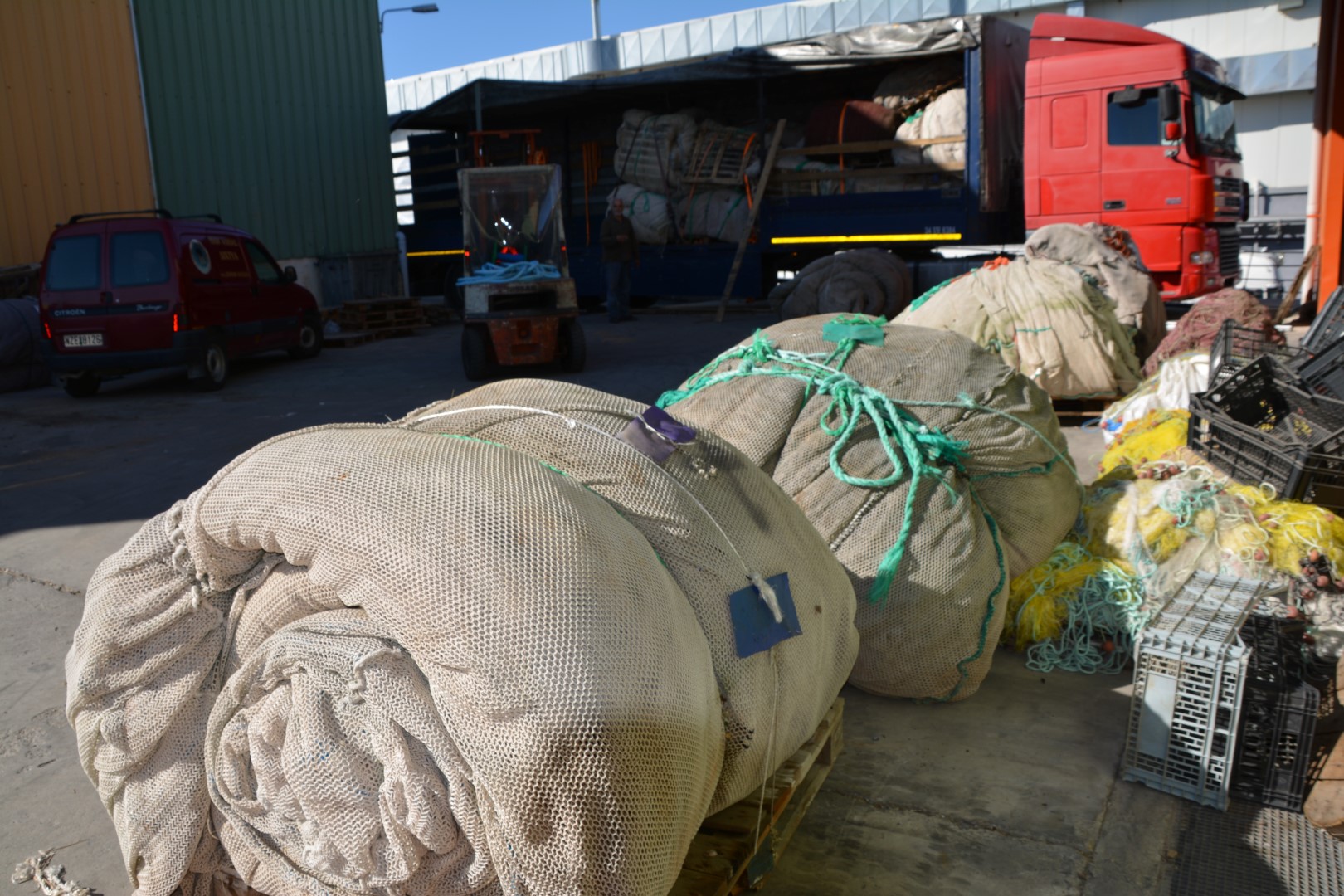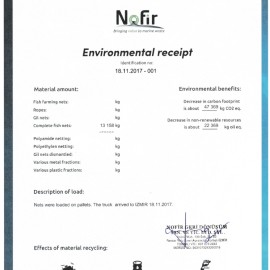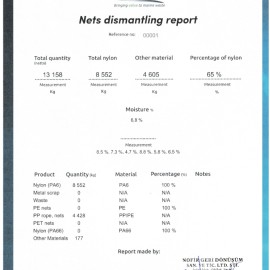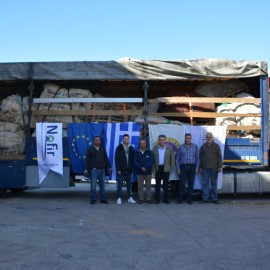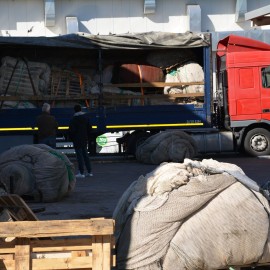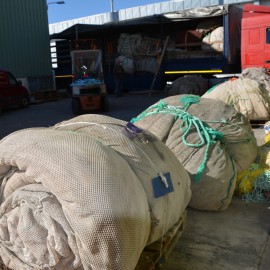Ghost nets in the seas can continue to create problems not only for marine wildlife but also local communities and fishermen:
- It places significant costs on them through lost fishing time and damage to active nets.
- Ghost nets keep fishing uncontrolled and lead to unnecessary catch of fish stocks, so it’s also a loss for fishermen and an economic damage for the fishing industry.
- It can cause disturbance for the maritime traffic through propeller entanglement.
Healthy Seas established waste fishing net reception facilities in selected harbours in the pilot regions in Europe. We encourage the fishermen to cooperate with us and offer multiple benefits for those who decide to do so, including cost saving, improved image and promotional benefits: fishermen can be part of the solution and not the problem.
The fishing industry has the possibility to contribute to CO2 reduction and thus climate change mitigation. After every shipment of the collected nets, the fishermen will be provided with an ‘Environmental receipt’ which indicates the environmental benefits of their action. This is how fishermen and fish farmers can have a positive impact on environment, by collecting their waste nets at the end of life with NOFIR and Healthy Seas.
Few weeks ago, over 13 tons of waste fishing nets were transported to recycling from Greece, thanks to DIOPAS, a new partner of Healthy Seas in Greece. This major step marks the start of cooperation to bring the old fishing nets from Greek fishermen and fish farmers into the recycling process and so to ensure that as few nets as possible end up in seas in Greece.



